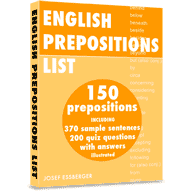Type 0. If + Present tense + Present tense i.e.:
- If I press the button, the bell rings. / The bell rings if I press the button.
- Si pulso el botón el timbre suena.
- If you study, you will pass your exam.
- Si estudias pasarás tú examen.
- If you studied, you would pass your exam.
- Si estudiaras pasarías tú examen.
- If you had studied, you would have passed your exam.
- Si hubieras estudiado habrías pasado tú examen.
- Unit 38. If I do ... and If I did ...
- Unit 39. If I knew ... I wish I knew.
- Unit 40. If I had known... I wish I had known ...
We haven't to know anything about "I wish I knew" form so you don't need to study nothing about the part of this unit related to it.







